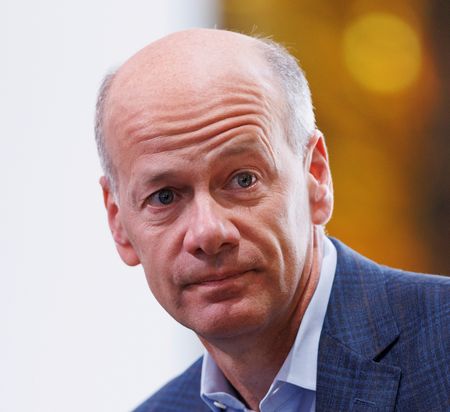 1
1 1
1
By Hannah Lang, Tatiana Bautzer, Pete Schroeder and Ann Saphir
WASHINGTON/NEW YORK (Reuters) – The former chief executive of Silicon Valley Bank defended the U.S. lender’s efforts to manage risk in his first public comments after the bank’s shock collapse, as regulators promised better supervision to prevent more such failures.
The top executives at SVB and another failed lender, Signature Bank, as well regulators overseeing them appeared at separate congressional hearings on Tuesday to be grilled by senators demanding an account of why the banks collapsed.
California banking regulators shut down Silicon Valley Bank on March 10 after depositors withdrew $42 billion in 24 hours, sparking a rout in bank shares globally and investor fears of contagion spreading to other banks.
Two other U.S. regional lenders – including Signature – have since failed, marking the biggest turmoil to grip banks since the 2008 financial crisis.
In his comments, former SVB CEO Greg Becker painted a picture of an unprecedented, unforeseeable crisis that unfolded at lightning speed despite the bank taking risk management seriously and having liquidity of around $80 billion at the end of last year.
“I believe it was a series of unprecedented events that all came together in the fastest bank run in history,” Becker told the Senate Banking Committee.
In a separate House of Representatives hearing, top banking regulators vowed to ensure supervisors more aggressively police lenders.
RISK ON?
Tuesday’s hearing for the first time offered lawmakers the opportunity to grill Becker, who has been criticized for failing to address risk-management issues that had been flagged by regulators. Some lawmakers have also rebuked Becker for dishing out bonuses and have questioned whether he and other executives profited from stock sales ahead of the bank’s collapse.
Becker sold SVB stock in the first quarter with the largest sales on Feb 27, public records show. He said he was unaware the bank was in trouble at the time.
“I was the CEO of Silicon Valley Bank, I take responsibility for what ultimately happened,” Becker said.
Lawmakers on both sides of the partisan divide, though, were unimpressed.
“Why did you ignore admonitions from regulators?” Senator Sherrod Brown, a Democrat, said in his opening statement.
“There is a simple answer, the same answer we find for most big bank failures — because the executives were getting rich.”
Executives from Signature Bank also testified alongside Becker on Tuesday, pushing back on assertions from lawmakers that the bank had weak corporate governance.
“I don’t believe that there was mismanagement at the bank,” said Eric Howell, the former president of Signature Bank.
Responding to criticism about SVB lacking a chief risk officer in the months leading up to its collapse, Becker said he had been told by regulators to look for a more experienced executive for the position. He also said he would cooperate with regulators as they reviewed SVB’s executive compensation.
SVB’s downfall was triggered by holdings of long-term Treasuries losing value as interest rates rose quickly – a risk the bank had not hedged. It was instead forced to borrow in the short term at higher rates while maintaining long-term loans on its books that were made when rates were low.
The bank tried to cover the loss by raising capital, but in announcing the transaction helped fuel a bank run.
“Mr. Becker you made a really stupid bet that went bad, didn’t you,” said Senator John Kennedy, a Republican. “And the taxpayers of America had to pick up the tab for your stupidity.”
Becker rebuffed regulators’ assertions that SVB failed to manage interest rate risks in his prepared testimony, saying that up until late 2021, the Federal Reserve had indicated that interest rates would remain low and that rising inflation was merely transitory.
TOUGHER RULES COMING
At a separate hearing, the Federal Reserve’s top regulatory official told House members the central bank was investigating a payout of executive bonuses at SVB hours before it was closed by regulators, calling it “outrageous.”
SVB employees received annual bonuses March 10 just hours before the bank was shuttered, according to media reports.
At the other hearing, Becker told lawmakers that the bonuses were for employees’ performances in 2022 and that the bank’s human resources department had scheduled the payment date in advance without his knowledge.
Fed Vice Chair for Supervision Michael Barr also said the Federal Reserve will unveil a plan for overhauling bank capital and liquidity rules this summer, which could include tougher rules on banks similar in size to SVB and Signature.
Such lenders had previously had rules relaxed under the Trump administration, but Barr said the Fed was “carefully considering” rule changes for larger regional banks of over $100 billion in assets.
(Reporting by Hannah Lang and Pete Schroeder in Washington, Tatiana Bautzer in New York and Ann Saphir in San Francisco; additional reporting by Saeed Azhar; Editing by Lananh Nguyen, Michelle Price and Deepa Babington)